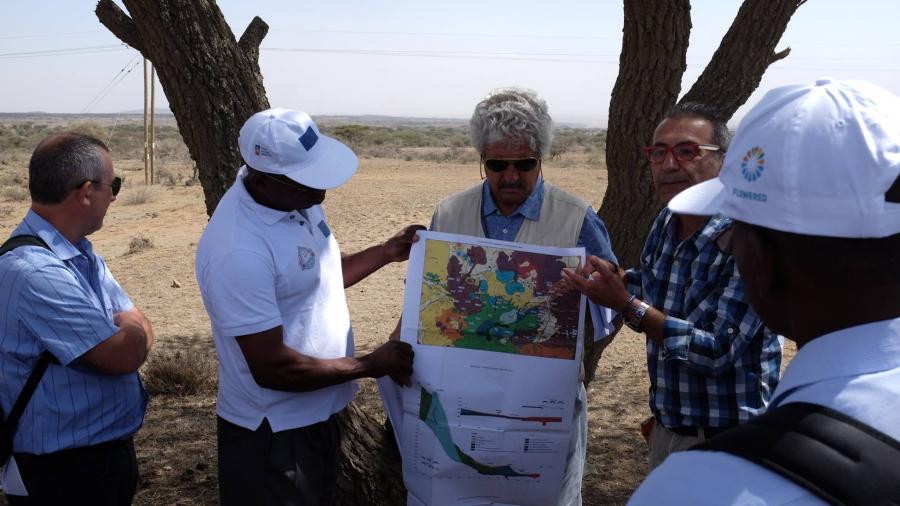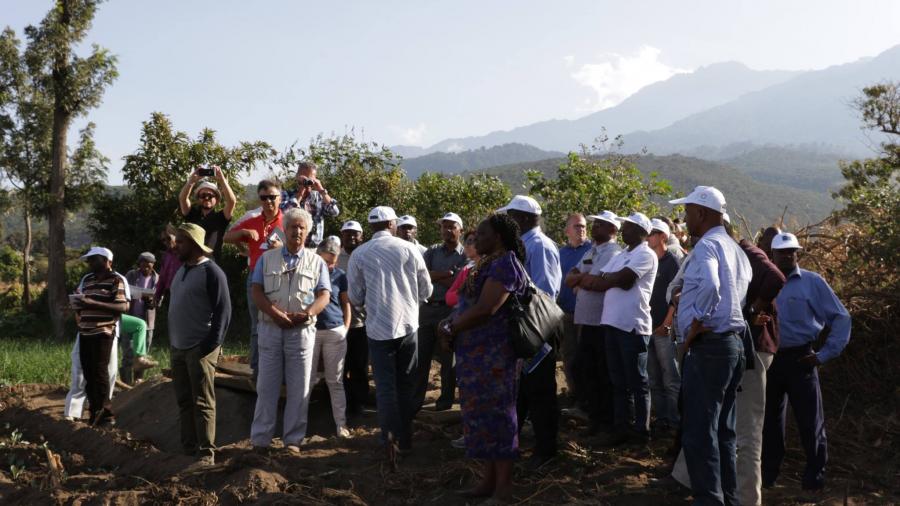Approval Date
15 December 2015
Project Duration
1 June 2016 - 30 November 2019
Financial & Technical Partners
FLOWERED is funded by the European Union’s Horizon 2020 « Research and Innovation » Program to the tune of 2 989 201,25 Euros.
The project is implemented by a consortium composed of 14 partners:
- UNIVERSITA DEGLI STUDI DI CAGLIARI (Italy)
- UNIVERSITA DEGLI STUDI DI SASSARI (Italy)
- UNIVERSITA' DEGLI STUDI DI SIENA (Italy)
- UNIVERSITAT DE BARCELONA (Spain)
- ABERYSTWYTH UNIVERSITY (United Kingdom)
- ADDIS ABABA UNIVERSITY (Ethiopia)
- UNIVERSITY OF ELDORET (Kenya)
- THE NELSON MANDELA AFRICAN INSTITUTE OF SCIENCE AND TECHNOLOGY (Tanzania)
- OIKOS EAST AFRICA (Tanzania)
- SAHARA AND SAHEL OBSERVATORY (Tunisia)
- HYDRO TECHNICAL ENGINEERING SRL (Italy)
- PLANETEK ITALIA SRL (Italy)
- D D'ENGINY BIOREM SL (Spain)
- GEOMATRIX PLC (Ethiopia).
Country of operations
Ethiopia, Kenya, Tanzania
Project Beneficiaries
- Public, private and political institutions and other authorities of the three African countries concerned (Ethiopia, Kenya, Tanzania);
- Small and medium-sized enterprises (SMEs), NGOs (interested in the implementation of new technologies related to water consumption, agriculture, and wildlife protection);
- Water managers, scientific community, educational system, PhD students, post-graduate students, young scientists
- Farmers associations, rural communities
Objective
FLOWERED objective is to contribute to the development of a sustainable water management system in areas affected by fluoride (F) contamination in water, soils and food in the African Rift Valley countries (Ethiopia, Kenya, Tanzania), and to improve living conditions (environmental, health and food security) of their populations.
- Study, test and implement innovative defluoridation technologies for drinking and irrigation water that will mainly operate at small village scale
- Develop an integrated, sustainable and participatory water and agriculture management at the transboundary scale.
Project Status
Closed
Expected Outcomes
- Identification and mapping of the geological, hydrogeological and geo-chemical conditions associated with the presence of fluoride in the water bodies and groundwater
- Elaboration of operational solutions for reducing water contamination with fluoride in agricultural and livestock systems
- Identification and experimentation of water defluoridation technologies
- Development of an innovative geo-data system for knowledge management, a web platform for data sharing, and a mobile application for data collection.
FLOWERED will contribute to reducing fluoride contamination in the African Rift Valley (Ethiopia, Kenya and Tanzania), which is one of the major challenges for health, environment and food security in the region. The project will set up an integrated, sustainable and participatory system for water and agriculture management which will help improve the living and health conditions of the local population while ensuring a fair distribution of natural resources among the different users in the three project targeted areas.
Achievements
- Development of a project website : http://www.floweredproject.org and social medias
- Development of an innovative Geo-Data system for knowledge sharing and a web platform for data sharing
- Identification and experimentation of innovative defluoration technologies
- Characterization of the targeted geographic, geological and hydro-geological areas
- Collection of data on agricultural, breeding and soil systems
- Realization and implementation of a communication strategy and action plan
- Development of communication and awareness tools for the general public: Comic's in local language, leaflets in local language, posters, quarterly newsletter
- Production of documentary films on project achievements, technical capsules in the form of interviews with researchers
- Organization of three workshops to exchange experiences in the 3 countries concerned (Tanzania 2017, Kenya 2018 and Ethiopia 2019): scientific conferences and field visits
- Participation international events (COP, regional Foras)
- Publication of scientific papers
- Dévelopement of a de-fluoridation prototype tested in the main intervention areas of the project


